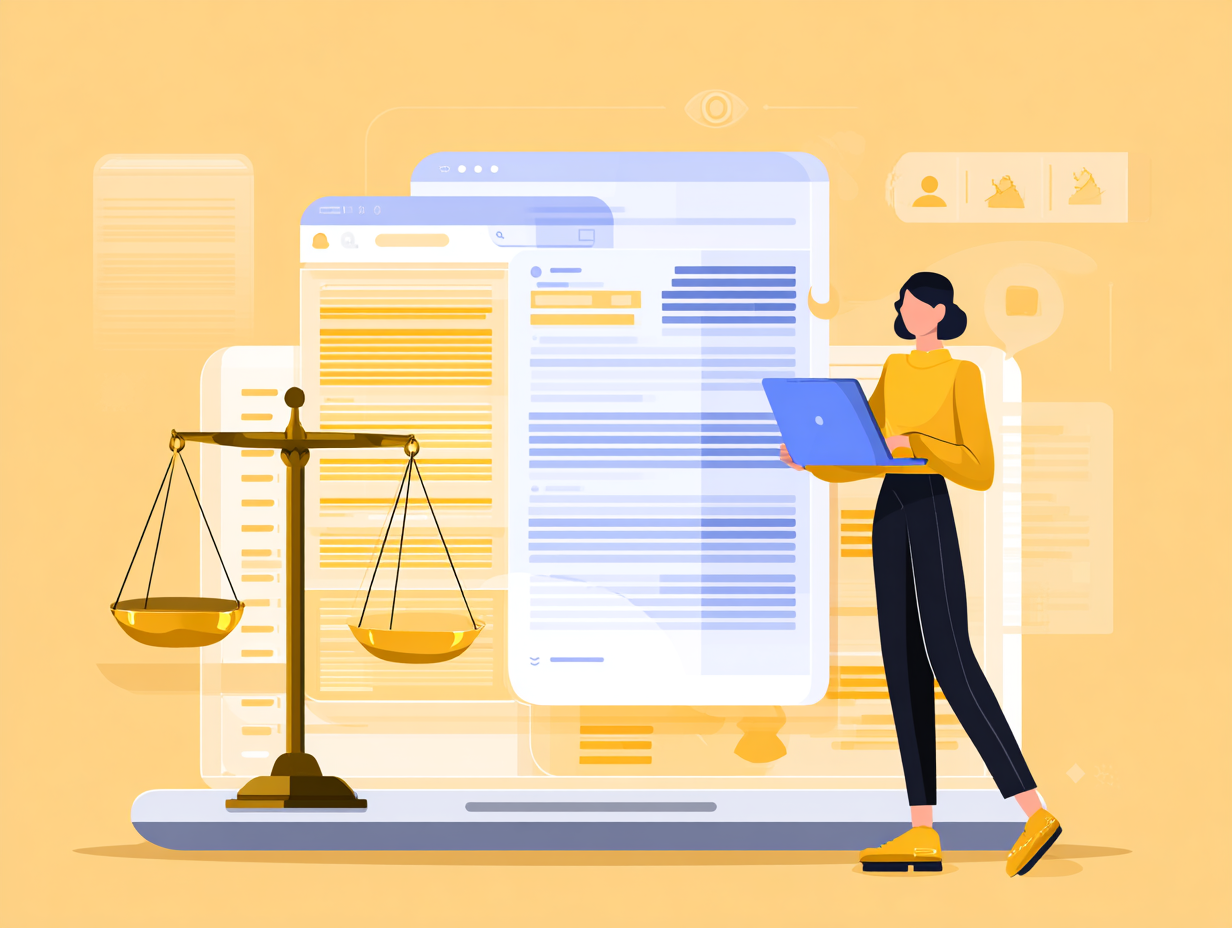AI Software
AI Legal Software: The Future of Smarter, Faster Legal Workflows
May 22, 2025

Legal work has long been synonymous with complexity, cost, and hours of manual review. But the rapid evolution of artificial intelligence is transforming that reality. With the emergence of AI legal software, legal teams and businesses alike are embracing a new era of automation, efficiency, and accessibility.
This article explores what AI legal software is, how it works, and why it’s reshaping the legal landscape for startups, enterprises, and everyone in between.
What Is AI Legal Software?
AI legal software refers to technology platforms that use artificial intelligence to perform or assist with legal tasks traditionally handled by humans. These tasks may include:
- Reviewing and analyzing contracts
- Identifying legal risks and compliance issues
- Drafting and redlining documents
- Organizing case files and legal research
- Predicting legal outcomes
Rather than replacing lawyers, AI legal tools augment their capabilities—automating routine work so legal professionals can focus on strategic decision-making.
How Does AI Legal Software Work?
AI legal tools rely on natural language processing (NLP), machine learning (ML), and large language models (LLMs) to understand and generate legal text. Here’s a breakdown of how they typically function:
- Data ingestion: The software reads contracts, agreements, or policies.
- Clause recognition: It identifies and categorizes legal provisions such as indemnity, termination, or payment terms.
- Risk analysis: Based on learned legal standards, it flags problematic clauses or missing elements.
- Suggestions: The tool proposes edits or alternate language, often in plain English.
- Collaboration: Some platforms allow multiple users to comment, edit, and track document versions in real time.
Why Businesses Are Adopting AI Legal Software
Legal technology adoption is accelerating for good reason. AI legal tools are delivering tangible benefits across industries:
1. Speed
Contracts and legal documents that once took days or weeks to review can now be analyzed in minutes—accelerating deal timelines and reducing bottlenecks.
2. Cost Savings
By automating repetitive legal tasks, businesses can drastically reduce their reliance on expensive legal counsel for every contract review, especially for standard agreements like NDAs, MSAs, and SOWs.
3. Accuracy
AI systems are trained on vast amounts of legal data, enabling them to catch issues that human reviewers might overlook, such as ambiguous clauses or missing terms.
4. Scalability
Startups and large enterprises alike can scale their legal operations without building large internal teams, thanks to tools that adapt to growing workloads.
Common Use Cases for AI Legal Software
- Contract review and redlining
- Policy compliance audits
- M&A due diligence support
- Employment and vendor agreement reviews
- Intellectual property and licensing analysis
A Closer Look: Red Lynz and the AI Legal Workflow
Platforms like Red Lynz exemplify how AI legal software can streamline operations for modern teams. Designed for founders, operations leaders, and in-house counsel, Red Lynz automates the redlining and negotiation process for business contracts.
With features like:
- Automated clause suggestions
- Real-time collaboration
- Integration with Word and Google Docs
- Support for common contract types
- Simple, intuitive UI for non-lawyers
Red Lynz enables businesses to finalize contracts faster, with less risk and lower legal spend.
Is AI Legal Software a Threat to Lawyers?
The short answer: no. AI legal tools are not here to replace legal professionals—they’re here to enhance them.
Just as accounting software didn’t eliminate accountants, AI in law enables lawyers to focus on strategic counsel, high-risk matters, and bespoke negotiations while offloading the repetitive work.
In fact, many in-house legal teams now consider AI a competitive advantage.
Choosing the Right AI Legal Software
When selecting a platform, look for:
- Ease of use for both legal and non-legal users
- Transparent AI suggestions and plain-language explanations
- Robust security and document control
- Support for your specific contract types and workflows
- Integration with tools your team already uses
Final Thoughts
AI legal software is no longer a futuristic concept—it’s a practical solution for companies looking to move faster, reduce legal costs, and ensure airtight agreements.
Whether you’re a founder navigating your first term sheet or a legal team managing thousands of contracts, AI is poised to become your most valuable collaborator.
Curious to see AI legal software in action? Try Red Lynz for free and transform the way your team works with contracts.


